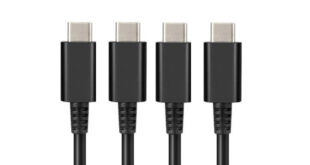Last month, Apple unveiled the new Apple TV, revamped to offer a broader range of entertainment – now including games. But will this fresh platform have a similar impact to past iOS platforms?
There are certainly plenty of developers already on board, with Apple announcing new titles from Harmonix, Pixel Toys and Hipster Whale during its on-stage presentation, as well as dropping names such as Ubisoft, Disney and Activision through the device’s website.
Yet there remains some scepticism around Apple TV. SuperData Research’s Joost van Dreunen told Develop: “At first glance, it seems to be a great opportunity to developers, allowing them to port games and, ostensibly, expanding the addressable market. But Apple is taking a relatively inflexible stance with regards to what it wants developers to make.
“Similar to the lack of transparency on the App Store, I expect Apple to call all the shots on Apple TV to preserve a particular consumer experience, but thereby also limiting innovation.
“Even with the support of Disney and Harmonix, it is not yet clear whether the Apple TV will be able to position itself as a long-term gaming device.”
BREAKING THE CURSE
A lot of this doubt stems from the disparate performance of similar devices in the market.
While there are plenty of streaming devices for video content such as Roku, it is unclear whether products like Amazon’s Fire TV have proven to be lucrative for developers. And there is the shadow of troubled microconsoles – most famously the crowdfunded Ouya.
“We all know microconsoles aren’t new and neither are set-top boxes,” said Pixel Toys co-founder Andy Wafer. “But the new Apple TV does offer developers a way to bring their iOS apps, or at least ones similar to them, to the living room for the first time – something that no other platform can offer.
“In the past, it hasn’t been clear to consumers what the benefits of microconsoles really are. They’ve been seen as underpowered compared to consoles and the content has been lacking. This device is much more than just a microconsole – if you’re an Apple user, it offers access to all your iTunes content, your movies, TV shows, music, photos and more.”
Space Ape COO Simon Hade added: “People are already well served when it comes to TV content. But if Apple puts its full weight behind it, it can overcome the problems seen in the past. It comes down to content, so if they can make the platform compelling for devs then that will come.”
Van Dreunen adds that Apple is unlikely to suffer the struggles as past microconsoles because the company has “a much broader offering”, as well as the support of heavy-hitters such as Disney and Harmonix.
Even with the support of Disney and Harmonix, it is not yet clear whether the Apple TV will be able to position itself as a long-term gaming device.
Joost van Dreunen, SuperData Research
“Apple also has a substantial install base when it comes to games,” he said. “Devices like Ouya and others had none of these, making them much more sensitive to the volatility in the games market.”
Mark Knowles-Lee, head of Mind Candy’s Candy Labs studio, added: “Streaming boxes are now something many consumers want and because Apple designs and markets its products incredibly well, the mass market will hear about, want and be able to afford Apple TV,” he said.
“The new box will undoubtedly establish a beachhead. Success will then be dependant on great games and experiences that make sense for players and fit the ‘living room’ space. There’s a market there – it just needs some killer apps for that audience.”
There are some challenges that face potential Apple TV developers. Most notably, the maximum size allowed for tvOS apps will be somewhat restrictive at 200MB.
CHALLENGING LIMITATIONS
However, devs are confident that there will be ways to work around this, while others embrace the challenge of creating something of a high quality within these limits.
“Games can still have a lot more than 200MB worth of content – it’s just the initial install that needs to be under that,” said Wafer. “Apple TV games will download extra content as and when needed. It means players will be able to keep more games on the device before they need to start deleting them, and that’s good for developers, too.”
Knowles-Lee added: “Devs should either make small slick apps, or design and architect your game to have a lightweight install and then make use of the 20GB that Apple will host for you.”
Hade believes streaming will also be an option, and that future iterations will offer more generous app size allowances. Instead, he posits that the bigger challenge is the new Siri Remote.
Bearing a handful of buttons, a small touch surface and a motion sensor, the device appears to be a successor to the Wii Remote. And while there will be compatible gamepads, Apple has stated that all tvOS games must be playable with the remote.
It’s an iPod for the Netflix generation, a product we didn’t realise we wanted.
Jon Ingold, Inkle
Inkle creative director Jon Ingold said: “Personally, I love that kind of constraint. It forces you to keep the game simple, it makes the content shine, it means the final result will be very playable by a wide range of people. And it means, at least to begin with, there’ll be more new titles and fewer clones. I don’t think Flappy Bird will work that well, and nor will first-person shooters.”
Wafer added: “It might be a challenge to adapt games originally designed for a touch screen or game controller, but new games designed for the Apple TV will make the best use of it, and players who prefer a more traditional input method will be able to use other supported controllers.”
Ben Murch, co-founder at Rodeo Games, predicts a lot of initial Apple TV titles will be based on iOS games with poorly implemented new control schemes, adding: “An original concept utilising the remote would be paramount to making an Apple TV title.”
For all the limitations, there is some optimism among developers. Several studios even talk of creating new ‘living room experiences’ that revolve around not only using the new device, but also the Apple smartphones and tablets likely already present.
Ingold expects a “pretty intriguing” mix of casual and console-style games, adding: “Good games for Apple TV will have to be both. You’ve got to use the larger screen, but a living room is a naturally social environment.”
Van Dreunen said to truly succeed as a games device, Apple TV will need to offer better support to developers.
“There is absolutely no reason why Apple doesn’t do more for indies,” he said.
“Apple has a real opportunity to become the go-to platform. It could certainly afford to reserve $100m to cultivate a unique indie talent pool. This will give Apple a defining edge when compared to Microsoft and Sony.”
Even without this support, however, many developers are excited by the possibilities offered by Apple TV.
“It’s an iPod for the Netflix generation, a product we didn’t realise we wanted,” said Ingold. “Apple’s magic is to create markets where they didn’t exist. Apple TV could be a fresh marketplace free from near-identical games.”

 MCV/DEVELOP News, events, research and jobs from the games industry
MCV/DEVELOP News, events, research and jobs from the games industry



